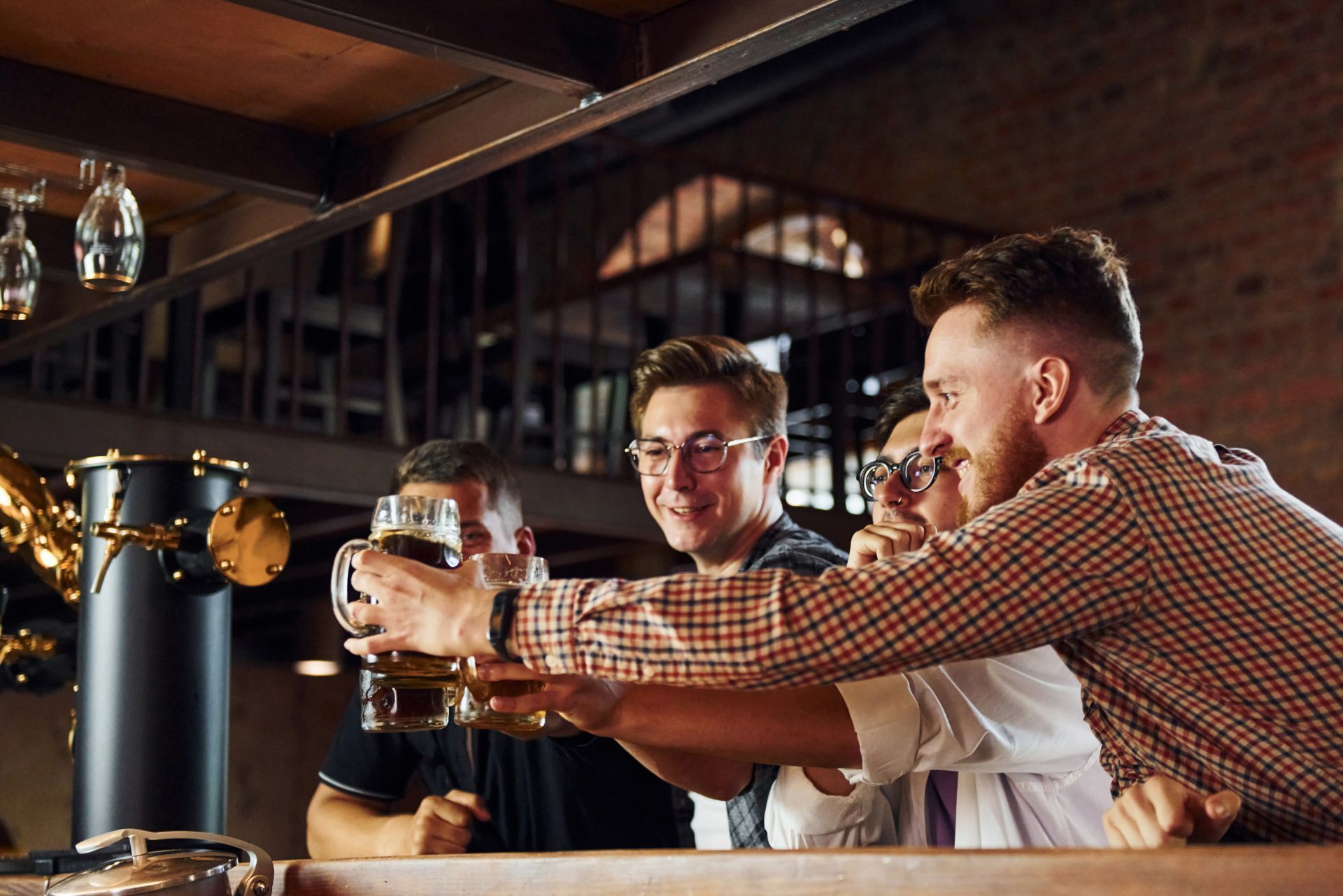Colorado’s craft beer scene is renowned nationwide, with hundreds of breweries and distilleries contributing significantly to the state’s economy and culture. However, running a distillery or brewery restaurant in Colorado comes with unique risks that require
specialized insurance coverage. This guide breaks down the essential insurance types, industry trends, and practical tips to help business owners protect their operations effectively.
Understanding the Colorado Craft Beverage Industry Landscape
Colorado’s craft beer industry has long been a powerhouse, generating over $2.4 billion in economic impact through jobs and revenue. This impressive figure highlights the sector’s importance to local communities and the broader economy. However, recent trends indicate a shift in the market dynamics, with consolidation becoming more common.
In 2025, notable breweries such as Denver Beer Co., Great Divide Brewing, and Funkwerks were acquired, signaling a wave of consolidation among the stronger players. As one industry expert put it, “Any industry that proliferates is going to eventually consolidate around the stronger players. I think that’s a natural thing, and we’re lucky to be on our side of it.” This consolidation reflects a maturing market where competition intensifies and smaller players face pressure to adapt or merge.
Moreover, the number of brewery openings in Colorado has slightly declined. In 2024, brewery openings accounted for 5% of the total, while closings were at 6%, leading to a net decrease of 1%. This subtle contraction suggests that the market is stabilizing after years of rapid growth. For distillery and brewery restaurant owners, understanding these trends is crucial when assessing risk and planning for future growth.
As the landscape evolves, craft beverage producers are also exploring innovative avenues to differentiate themselves. Many breweries are now focusing on unique flavor profiles and sustainable practices to attract a more discerning consumer base. For instance, some have begun to experiment with locally sourced ingredients, creating limited-edition brews that celebrate Colorado’s agricultural bounty. This not only enhances the product offerings but also strengthens ties with local farmers and suppliers, fostering a sense of community and shared purpose.
Additionally, the rise of craft cocktails and spirits has led to a diversification of the craft beverage scene in Colorado. Distilleries are increasingly collaborating with breweries to create hybrid products, such as beer-infused spirits or barrel-aged beers, which appeal to adventurous drinkers looking for new experiences. This cross-pollination of ideas and techniques not only enriches the craft beverage culture but also encourages a spirit of camaraderie among producers, as they navigate the challenges of a competitive market together.
Learn more about the
consolidation in Colorado’s craft beer industry.


Contact Us
Phone
Location
Key Insurance Coverage Types for Distillery & Brewery Restaurants
Operating a distillery or brewery restaurant involves a blend of manufacturing, hospitality, and retail risks. Insurance policies must reflect this complexity to provide comprehensive protection.
General Liability Insurance
This coverage protects against third-party claims of bodily injury or property damage. For brewery restaurants, slip-and-fall accidents or damage caused by patrons are common risks. General liability insurance covers legal fees and settlements, which can otherwise be financially devastating. Additionally, it often extends to cover incidents that occur off-premises, such as catering events or festivals, where the business may be liable for injuries or damages. This broad scope of coverage is essential for establishments that actively engage with their community and participate in local events.
Product Liability Insurance
Given that breweries and distilleries produce consumable goods, product liability insurance is essential. It protects against claims arising from contaminated or defective products that cause illness or injury. This coverage is critical in an industry where consumer safety is paramount. Furthermore, the unique nature of craft beverages means that even small batches can have significant consequences if a defect is discovered. In some cases, product recalls may be necessary, and having robust product liability coverage can help mitigate the financial impact of such actions, including the costs associated with notifying customers and managing public relations.
Property Insurance
Protecting the physical assets of a brewery or distillery restaurant, including brewing equipment, inventory, and the building itself, is vital. Property insurance covers losses from fire, theft, vandalism, and natural disasters. Given the specialized equipment involved, replacement costs can be high. Additionally, many breweries and distilleries invest heavily in their ambiance and customer experience, often featuring unique decor and furnishings that can also be covered under property insurance. This ensures that not only the brewing equipment but also the overall aesthetic of the establishment is protected, allowing for a swift recovery in the event of a loss.
Liquor Liability Insurance
Serving alcohol introduces unique legal risks. Liquor liability insurance covers claims related to alcohol-related incidents, such as intoxicated patrons causing harm to themselves or others. This coverage is mandatory in many jurisdictions and highly recommended for all establishments serving alcohol. Moreover, it can extend to cover incidents that occur during promotional events, such as tastings or happy hours, where the risk of over-serving may be heightened. By securing adequate liquor liability coverage, brewery restaurants can focus on providing a great experience without the constant worry of potential legal repercussions.
Workers’ Compensation Insurance
With a workforce handling heavy machinery, chemicals, and customer service, workplace injuries are a real risk. Workers’ compensation insurance covers medical expenses and lost wages for employees injured on the job, while also protecting the business from lawsuits. Additionally, this coverage can include provisions for rehabilitation services, ensuring that employees receive the necessary support to return to work safely. Given the physical demands of brewing and serving, having a strong workers’ compensation policy not only protects the business but also fosters a culture of safety and care for employees.
Business Interruption Insurance
Unexpected events like equipment failure or natural disasters can halt operations. Business interruption insurance helps cover lost income and ongoing expenses during downtime, helping businesses stay afloat through tough periods. This type of insurance can be particularly crucial for seasonal businesses that rely on peak periods for revenue. By ensuring that financial obligations are met even when operations are disrupted, brewery restaurants can maintain their relationships with suppliers and employees, allowing for a smoother transition back to normalcy once the crisis is resolved.
Cyber Liability Insurance
Many brewery restaurants use
digital point-of-sale systems and store customer data. Cyber liability insurance protects against data breaches, cyber-attacks, and related liabilities, which are increasingly relevant in today’s connected world. As more customers engage with businesses online, the risk of cyber threats continues to grow. This insurance not only covers the costs associated with data recovery and legal fees but also provides access to resources for improving cybersecurity measures. By investing in cyber liability insurance, brewery restaurants can enhance their overall security posture, safeguarding both their business and their customers’ sensitive information.
Emerging Challenges and Risk Factors in Colorado’s Market
The craft beverage industry faces evolving challenges that impact insurance needs. Rising production costs, changing consumer tastes, and increased competition all affect business stability.
One significant trend is the shift in consumer preferences. As noted by industry insiders, “There’s definitely more competition in the marketplace as people start drinking other types of alcohol and lean towards non-alcoholic options as well.” This diversification means breweries and distilleries must innovate while managing financial risks. The rise of health-conscious consumers has led to a surge in demand for low-alcohol and alcohol-free beverages, prompting many craft producers to rethink their product lines. This shift not only requires investment in new recipes and marketing strategies but also calls for thorough market research to understand the evolving tastes and preferences of consumers.
Additionally, Colorado liquor sales volume decreased by 6% in 2024 compared to the previous year, with wine sales dropping by 16%. This decline in sales volume can strain cash flow and increase the importance of insurance that covers business interruptions and liability risks. The competitive landscape is further complicated by the influx of out-of-state brands entering the Colorado market, which can dilute local sales and create additional pressure on established businesses. As a result, craft beverage producers must not only adapt to changing consumer preferences but also develop robust marketing strategies to maintain their market share amidst fierce competition.
Explore the recent liquor sales trends in Colorado for deeper insight.
Environmental and Energy Considerations
Breweries and distilleries consume substantial energy, making operational efficiency and sustainability important. A study involving 239 Danish breweries found that implementing energy flexibility measures could save 1.56% of electricity costs annually while reducing approximately 1,745 tonnes of CO2 emissions. While this study is international, it highlights an opportunity for Colorado businesses to reduce costs and environmental impact. As climate change continues to pose risks to agricultural supply chains, breweries must also consider how their sourcing practices can affect their overall sustainability. Collaborating with local farmers for ingredients not only supports the community but can also enhance the brand's appeal to environmentally conscious consumers.
Energy efficiency improvements can also influence insurance premiums, as reduced operational risks may lead to lower rates. Business owners should consider sustainability as part of their
risk management strategy. By investing in renewable energy sources, such as solar panels or wind energy, craft beverage producers can further mitigate risks associated with energy price volatility. Additionally, many insurance providers are beginning to offer incentives for businesses that demonstrate a commitment to sustainability, creating a win-win situation for both the environment and the bottom line. As the industry evolves, those who prioritize environmental responsibility may find themselves not only reducing costs but also enhancing their brand reputation in an increasingly eco-conscious market.
Insurance Tips for Colorado Distillery & Brewery Restaurant Owners
Choosing the right insurance involves more than selecting policies off a shelf. Here are practical tips tailored to Colorado’s unique craft beverage environment.
Assess Your Specific Risks
Each brewery or distillery restaurant has unique exposures depending on size, location, production volume, and customer base. Conduct a thorough risk assessment to identify potential liabilities and coverage gaps. Consider factors such as the potential for property damage due to equipment failure, the risk of employee injuries in a production environment, and the implications of serving alcohol to patrons. Engaging a risk management consultant can provide valuable insights into these specific vulnerabilities and help prioritize which areas require the most attention.
Work with Specialized Insurance Providers
Look for insurers experienced in the craft beverage industry. Specialized providers understand the nuances of brewing operations, alcohol service, and hospitality risks, offering tailored policies that general insurers might not provide. These experts can guide you through the complexities of coverage options, such as product liability, equipment breakdown, and business interruption insurance, which are crucial for protecting your investment. Additionally, they can assist in navigating the specific challenges presented by Colorado's diverse climate and geography, ensuring that your policy is as comprehensive as possible.
Regularly Review and Update Coverage
As the business grows or changes, insurance needs evolve. Regular policy reviews ensure coverage remains adequate, especially during periods of expansion, equipment upgrades, or changes in product lines. It's essential to keep your insurer informed about any significant changes, such as renovations to your facility or the introduction of new products, as these can impact your risk profile. Furthermore, consider scheduling annual reviews to align your coverage with industry trends and emerging risks, such as cyber threats or changes in consumer behavior.
Consider Risk Mitigation Strategies
Implementing safety protocols, employee training, and energy efficiency measures can reduce claims and insurance costs. For example, energy flexibility initiatives not only cut costs but also demonstrate proactive risk management to insurers. Additionally, investing in employee safety training can minimize workplace accidents, which not only protects your staff but can also lead to lower premiums. Regularly updating your safety protocols and conducting drills can foster a culture of safety within your establishment, ultimately benefiting both your employees and your bottom line.
Understand Colorado’s Regulatory Environment
State laws around alcohol service, licensing, and liability affect insurance requirements. Staying compliant helps avoid penalties and ensures insurance policies remain valid. Familiarize yourself with the Colorado Liquor Code and local regulations, as these can vary significantly by municipality. Engaging with local industry associations can provide valuable resources and updates on regulatory changes, helping you stay informed and compliant. Additionally, understanding the nuances of liability laws in Colorado can help you craft policies that not only protect your business but also align with state requirements, ensuring a smooth operation in the competitive craft beverage landscape.

How Industry Trends Affect Insurance Needs
The ongoing consolidation in Colorado’s craft beer industry means fewer but larger players dominate the market. For smaller distillery and brewery restaurants, this can translate into increased competition and pressure on margins.
With 433 craft breweries operating in Colorado as of 2023, including well-known names like WeldWerks Brewing Co., the market is crowded. This density increases the risk of business interruptions and competitive challenges, making comprehensive insurance coverage even more critical.
Understanding these market dynamics helps businesses anticipate risks and adjust insurance portfolios accordingly. For example, as some breweries get acquired, insurance policies might require adjustments to reflect new ownership structures or operational changes.
More on Colorado’s brewery landscape can be found at
EconoWatch’s brewery report.
Frequently Asked Questions About Brewery & Distillery Insurance in Colorado
Q: Is liquor liability insurance mandatory in Colorado?
A: Yes. Any business serving alcohol in Colorado must carry liquor liability insurance to cover alcohol-related incidents and comply with state regulations.
Q: Can general liability insurance cover product recalls?
A: General liability typically does not cover product recalls. Product recall insurance is a separate policy designed to cover costs related to recalling defective or contaminated products.
Q: How can energy efficiency impact my insurance premiums?
A: Implementing energy-saving measures can reduce operational risks and may lead to lower insurance premiums by demonstrating proactive risk management.
Q: What should I do if my brewery is acquired by a larger company?
A: Notify your insurer promptly to update your policies. Ownership changes can affect coverage needs and risk profiles.
Q: How often should I review my insurance policies?
A: At least annually, or whenever significant changes occur in your business operations, to ensure coverage remains adequate and up to date.
What to Remember When Insuring Your Colorado Brewery or Distillery Restaurant
Protecting a distillery or brewery restaurant in Colorado requires a tailored approach that accounts for the industry’s unique risks and evolving market conditions. From general liability to product and liquor liability, comprehensive coverage is essential to safeguard your investment.
Stay informed about industry trends like consolidation and shifting consumer preferences, as these can influence your risk exposure and insurance needs. Embracing energy efficiency and regulatory compliance not only reduces risks but can also improve your insurance terms.
By partnering with specialized insurers and regularly reviewing your policies, you can navigate the complexities of the craft beverage industry with confidence. This proactive approach ensures your business remains resilient in a competitive and changing landscape.
For more insights on the economic impact of Colorado’s craft beer industry, visit
The Durango Herald’s report.
ABOUT THE AUTHOR:
JEFF MAGOON
I'm Jeff Magoon, Principal at Magoon Group Insurance Intelligence, helping Colorado businesses simplify risk, close coverage gaps, and get fast, strategic support for their insurance and growth needs.
Contact Us
Real Reviews from People We’ve Helped
Clients trust us because we make insurance simple, responsive, and effective. From complex business coverage to personal policies, Magoon Group delivers results with clarity and care.
Specialized Insurance
We understand the unique risks of different industries. Whether you’re managing people, property, or services, we deliver coverage that keeps you protected and compliant.
From general to specialty contractors, we provide coverage for job sites, tools, vehicles, and liability.
Protection for your inventory, property, and operations—whether you're selling, repairing, or leasing.
Coverage for malpractice, equipment, employees, and your professional reputation.

What You Should Know About Insurance
We get a lot of questions—and we’re happy to answer them. Here are a few we hear most often, with answers you can count on.
Helpful Insurance Tips & News
We post new articles that help you stay informed, avoid costly mistakes, and understand your coverage better.
Contact Us
Phone
Location







